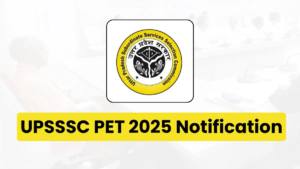Navigating the Labyrinth: Subject-Wise Strategies for Conquering Government Exam Syllabi
Laying the Foundation: Understanding the Syllabus Landscape
The journey to securing a coveted government job in India is often likened to navigating a complex labyrinth, with the syllabus of each major examination serving as its intricate blueprint. For aspirants aiming to crack prestigious exams like the SSC CGL, CHSL, CPO, UPSC CSE, and various State Public Service Commission (PSC) examinations, a thorough understanding and strategic approach to each subject within the syllabus is paramount. Simply covering the topics is insufficient; true mastery lies in dissecting the requirements, identifying effective preparation methods, and leveraging appropriate resources for each distinct area of knowledge. This essay will delve into subject-wise preparation strategies for some of the most popular government exams, offering a roadmap for aspirants to navigate this challenging terrain.

Decoding Numbers: Mastering Quantitative Aptitude
One of the foundational pillars across most government examinations is Quantitative Aptitude. This section often tests not just mathematical knowledge but also the ability to think logically and solve problems efficiently under time constraints. For exams like SSC CGL and CHSL, a strong grasp of arithmetic, algebra, geometry, mensuration, and data interpretation is crucial. Preparation should involve building a solid understanding of fundamental concepts, mastering shortcuts and formulas, and engaging in extensive practice with varied question types. Resources like NCERT textbooks for foundational understanding, alongside specialized books for competitive exams, can be invaluable. Regular practice through mock tests is essential to improve speed and accuracy. For UPSC CSE and State PSC exams, while the focus might be less on direct calculation and more on analytical application, a strong quantitative foundation remains beneficial for interpreting data and understanding economic concepts.
Sharpening the Mind: Conquering Reasoning Ability
The Reasoning Ability or General Intelligence section assesses a candidate’s capacity for logical deduction, pattern recognition, and critical thinking. This section is prominent in SSC exams, banking exams, and also forms a part of many State PSC preliminary examinations. Effective preparation involves understanding different types of reasoning questions, such as verbal reasoning (analogies, syllogisms, coding-decoding) and non-verbal reasoning (figure series, spatial reasoning). Consistent practice with diverse question sets is key to developing the necessary skills and identifying efficient problem-solving techniques. Utilizing online resources and dedicated reasoning books can significantly enhance performance in this area.
The Power of Words: Excelling in English Language and Comprehension
English Language and Comprehension is another ubiquitous component of government exams. For SSC CGL and CHSL, this section typically tests grammar, vocabulary, reading comprehension, and writing skills. A strong foundation in English grammar rules, regular reading to improve comprehension and vocabulary, and practicing different question formats are essential. Resources like Wren and Martin for grammar, alongside newspapers, novels, and online vocabulary builders, can be highly beneficial. For UPSC CSE, the focus extends to essay writing and precise comprehension, demanding a more nuanced understanding of the language and the ability to articulate thoughts effectively.
Navigating the Knowledge Spectrum: Tackling General Awareness
General Awareness or General Studies is arguably the most vast and dynamic section, encompassing history, geography, polity, economics, science, and current affairs. The depth and breadth of this section vary across different examinations. For SSC exams, a basic understanding of key facts and concepts is usually sufficient, while UPSC CSE and State PSC exams demand a much more in-depth and analytical understanding. Preparation for this section requires a multi-pronged approach. Regularly reading newspapers and following credible news sources is crucial for current affairs. For static GK, NCERT textbooks form a solid base, supplemented by standard reference books for each subject. Developing the ability to connect current events with underlying historical, geographical, and political contexts is particularly important for higher-level examinations.
Specialized Paths: Strategizing for Optional Subjects
For examinations like UPSC CSE and some State PSC exams, specific optional subjects also play a significant role in determining the final ranking. The preparation strategy for optional subjects requires a deep dive into the chosen discipline. Selecting an optional subject based on interest, availability of resources, and scoring potential is crucial. Thorough understanding of the syllabus, in-depth study of relevant textbooks and academic literature, and regular answer writing practice are essential for success in the optional papers.
The Road to Success: A Holistic and Strategic Approach
In conclusion, mastering the syllabus for popular government exams in India necessitates a subject-specific approach that goes beyond mere rote learning. By understanding the specific demands of each section, adopting effective preparation strategies tailored to the subject matter, and utilizing appropriate resources, aspirants can navigate the labyrinth of the syllabus with greater confidence and efficiency. Consistent effort, strategic planning, and a focused approach to each subject are the cornerstones of success in the competitive landscape of Indian government job examinations.










